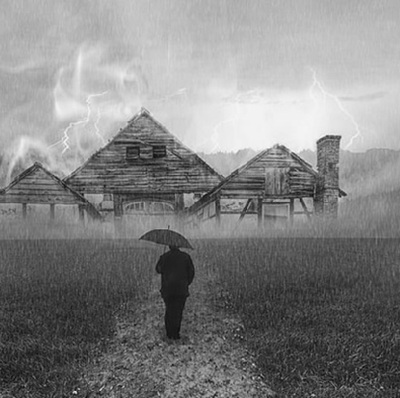.
.
Bellaire City Library in Bellaire, Texas. Lydia Liu/CC0 2.0

.
.
Greetings:
…..“Community Bookshelf” is a twice-yearly space where writers who have been published on Jerry Jazz Musician can share news about their recently authored books and/or recordings.
…..This edition includes information about books published within the last six months or so, and is limited to those who submitted their news by the edition’s publication deadline. The books within this feature are made up of novels and short story and poetry collections in which the entire content is by a single author. Stories or poems published within anthologies with multiple writers are not included.
…..All book descriptions, biographies, and photos were submitted by the writers with only minimal editing. Click on the author’s name under the book cover to be taken to pages where their work has been published on Jerry Jazz Musician.
…..I anticipate the next edition will be in the spring of 2026. Please get in touch with me as soon as possible if you expect to have a book published between September, 2025 and March, 2026, and would like to be included in “Community Bookshelf, #6”
…..Thanks for reading, and for supporting those who contribute their work to Jerry Jazz Musician.
Joe Maita
Editor/Publisher
.
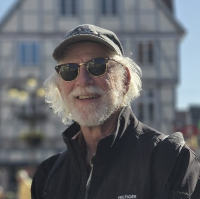
.
.
,
____________________
.
.
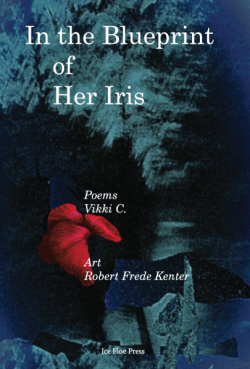
In The Blueprint of Her Iris, by Vikki C. (Poems) and Robert Frede Kenter (Art) (Ice Floe Press, 2025)
.
In The Blueprint of Her Iris (Ice Floe Press, 2025) is a powerful hybrid collaboration comprising poems by Vikki C. and visual art by Robert Frede Kenter that synergise to explore generational truths, origins, love and culture in parallel with our present eco-political crises.
Through a series of twenty-seven imagistic, lyrical poems juxtaposed with striking visual pieces, award-nominated poet Vikki C. (The Art of Glass Houses, Where Sands Run Finest) and prize-winning visual artist & poet Robert Frede Kenter (Audacity of Form, Eden, Father Tectonic) excavate fragments of normative philosophy to create interconnecting visions of time, space, illusion and memory, reshaping our Anthropocene panorama.
The collection honours the interdisciplinary convergence between poet and artist, where individual identities segue to form a greater entity. Examining spiritual evolution through otherworld realism, the collection opens the subconscious to a multifaceted gallery of unresolved eco-human paradoxes — ultimately, what we inherit, and what we must surrender.
.
A poem from the book:
.
A Study in Pianism & Time Signatures
The sheerest hour of uncut light casts us in duet.
Displaces common prose from glass rooms.
Only an instrumental bends to shape a cold river.
No other medicine is prescribed. A bed and
a shifting coast know the tension of a harp.
You place a lily in a vase destined to break after Proust.
I tend the byways of a land greater than its topography.
Like photographing the city — not for its arches —
but she whose dress directs the wind from the cage.
Placing flowers in my arms, I worry of your intent.
Try to love, you say. The world may end on a minor chord.
I search for a warmer key. For a lamplit resolution.
But lakes glitter where we are not. There is a door
in passing too, and a square of violet where bodies merge.
But the fugal road stretches further
— and the forest has its hostages.
.
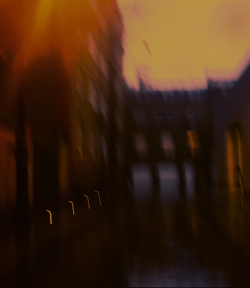
.
.
Click here for information about the book
.
.
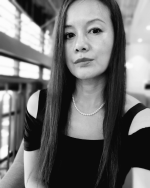
Vikki C.’s writing has earned nominations for The Pushcart Prize, Best of the Net & the Orison Best Spiritual Literature, & appears in EcoTheo Review, Grain, The Inflectionist, The Blue Mountain Review, Jerry Jazz Musician, Ballast, Black Bough, & others. She is the author of Where Sands Run Finest (DarkWinter Press, 2024).
Click here for her website
.

Robert Frede Kenter, author of Father Tectonic (Ethel Zine, 2025), is a visual artist, poet & EIC of Ice Floe Press – an international publisher of hybrid works with a collaborative bent. A Pushcart Prize & BOTN nominee, his recent work appears in The Winged Moon, Ballast, Cable Street, Black Bough, & Harpy Hybrid.
.
.
__________
.
.
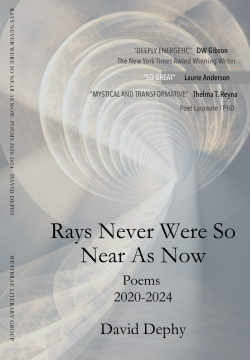
Rays Never Were So Near As Now, by David Dephy [Westbrae Literary Group]
.
David Dephy’s new poetry collection is inspired by his brutal and forceful exile from Georgia to the USA, political asylum, loneliness, and the family reunion. It reflects the poet’s experience. Poet sees how decency is spat out by the brutal, dark, dangerous, and almost indigestible system of modern society, which prioritizes a neo-hedonistic and stupidly direct materialism and possession over spiritual frequency.
In this evocative collection, David Dephy invites readers on a profound journey through light, shadow, and resilience. From the pulse of New York City subways to the stillness of an empty square, his poems bridge the intimate and the universal, capturing moments of love, war, memory, and hope. Written during a time of immense personal and global transformation (2017-2025), these verses illuminate the human spirit’s capacity to endure and flourish, even amid chaos.
Dephy’s reflections traverse landscapes of solitude and connection, culminating in a celebration of survival, love, and the unyielding desire for peace. David Dephy is an award-winning poet and novelist, known for his deeply moving and vivid works. An exile from his native Georgia, he found refuge in the United States, where his words continue to inspire and heal.
In Dephy’s work, readers attempt to animate the poems. These poems possess an imaginative and mystical power, a mystical breath from afar, achieving an uplifting effect, inviting us to other worlds that transcend everyday routine.
,
A poem from the book:
.
The Gift
In my childhood
I have had the ability
of saying words
in a very different way.
If I were saying “Rose,”
people were feeling
the smell of the rose,
immediately,
by saying “Coffee”
people were feeling
the smell of fresh hot coffee.
I lost that gift when I grew up,
but I found it once again
when I was miserable,
left alone, left for dead.
I said, “Hope,”
and you appeared,
sitting right next to me
in the empty subway station
waiting for a train.
.
.
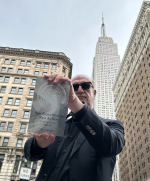
David Dephy is an award-winning American poet, novelist, essayist, and multimedia artist who holds a Master of Fine Arts degree accredited by Globe Language USA. He founded the Poetry Orchestra and American Poetry Intersection and serves as the Poet-in-Residence for Brownstone Poets from 2024 to 2025. NASA, Lunar Codex, and Brick Street Poetry sent David’s poem, “A Sense of Purpose,” to the Moon in 2025. Recognized as a “Literature Luminary” by Bowery Poetry, a “Stellar Poet” by Voices of Poetry, and an “Incomparable Poet” by Statorec, he has also been called “Brilliant Grace” by Headline Poetry & Press and praised for his “Extremely Unique Poetic Voice” by Cultural Daily. In 2017, Dephy was exiled from his native country of Georgia and granted immediate and indefinite political asylum in the U.S. His wife and 9-year-old son reunited with him in the U.S. in 2023 after seven years of exile. He lives and works in New York City.
.
.
__________
.
.
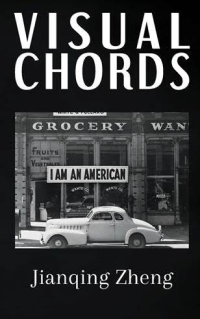
Visual Chords, by Jianqing Zheng [Broken Tribe Press]
.
Visual Chords is a collection of ekphrastic poems (haibun, tanka prose, haiku, tanka, and free verse) after the photographs of Dorothea Lange, William Ferris, Leo Touchet, and other famous or new photographers.
Available on Amazon, Barnes & Noble, Bookshop, Goodreads, and other platforms. View the book on Bookshop by clicking here
,
A haibun from the book:
.
Soulful Dancer
She is expressing herself, her shoulders bouncing, chest jilting, eyes sparkling with autumn sunshine. Jerking and stomping, popping and locking, wiggling and backsliding, she casts her smile to a streetful of whistles and clapping hands.
…..county fair
…..a butterfly flutters
…..head to head
.
.
Jianqing Zheng’s poetry books include The Dog Years of Reeducation, A Way of Looking, and Visual Chords. He teaches at Mississippi Valley State University, where he edits Valley Voices: A Literary Review.
.
.
__________
.
.
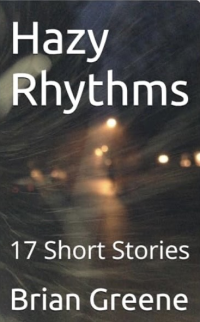
Hazy Rhythms, by Brian Greene
.
Hazy Rhythms is a collection of 17 short stories by Brian Greene. This is a compilation of Greene’s strongest short fiction to date. Over half of the stories have been published individually in literary journals, including Jerry Jazz Musician. The tales are works of stark realism that paint pictures of characters at pivotal moments in their lives. The writing is personal yet the challenges the characters encounter are universally relatable.
.
Click here to view the book on Amazon
.
.
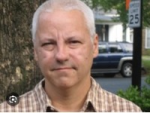
Brian Greene writes short fiction, as well as journalism features on books, music, film, and fine arts. His work has appeared in approximately 50 publications to date. Brian lives in Durham, North Carolina and he’s on Twitter/X @greenes_circles.
.
.
__________
.
.

Before the World Moves On, by Nathaniel Terrell [Warrington]
.
Before the world moves on is a moving powerful collection of poems, stories, anthems and songs. The title comes from my current mindset and life experiences in this ever changing world.
It’s written from the perspectives of a man in midlife, fighting demons, in deep reflection, processing measures of maturation. This manuscript is inspired by the signs of troubling times, calls for change, a vivid imagination, a need to express creatively while telling a story, and spreading positive vibes.
Each piece is composed from a spectrum of experiences, thoughts and emotions.
The messages are powerful, relevant and relatable especially to anyone in the process of healing, at a crossroads and or are questioning life, purpose and working to better themselves in the midst of great odds.
If you enjoy free verse, rhyme, love songs, faith vs doubt, ballads of pain, quality storytelling and lyrical monologues, you will love this book!
.
A poem from the book:
.
Seconds left
Back in the day
you and I would often promise forever
Unfortunately, forever was a beautiful lie
Some bonds grow super deep,
defying logic and odds
Some bonds, through pressure
and circumstance become undone
There are also bonds that get shattered
and in its aftermath, bitterness scars
tainting good sentiment
Was it an obsession, a deep connection
or do I still love you?
It is an awful shame
that we haven’t corresponded in years
But life is life
and our brief space in time ended long ago
Besides the meteorologist’s prediction,
I don’t know much about tomorrow
All the magic in the world
can’t bring me back to yesterday
This very moment,
you dance in my thoughts
I smile as I enjoy the last seconds of a song
that we used to be so fond of
And I am perfectly fine
with being haunted by a beautiful lie
.
.
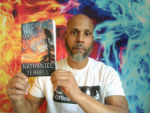
Nathaniel Terrell is an author, poet, storyteller and artist. He also creates spoken word videos for his youtube channel, X and instagram pages. His work has also been published in Maudlin house, Lifewriting.com, Oddball magazine, Kaytell Ink, Retrograde review, and more.
.
.
__________
.
.
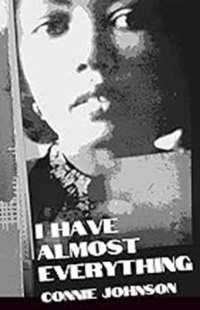
I Have Almost Everything, by Connie Johnson [boats against the current]
.
Published in May 2025, Connie Johnson’s second poetry collection explores the themes of love, loss, memory and jazz. According to Gary Campanella, Publisher/Managing Editor of Muleskinner Literary Journal:
“Connie Johnson’s poems consistently reach the music within. Reading her thoughts on Mingus or Ella or Brubeck, I inevitably find my feet tapping, my head nodding, and my fingers riffing an imaginary keyboard. Her poetic voice is always clear, pitch-perfect, and filled with the wonder of capturing the wonderful. Like so many of her subjects, she makes no aesthetic mistakes.”
.
.
A poem from the book:
.
This Was Just My Random Thought
A face painted on the pavement gets to stare
up dresses passing by. I’m invaded by dark hunger,
while sausage thighs are your idea of erotica.
Spying butterflies enjoy the colors of jazz, a face
of cat-eyed liner and what remains of my divinity.
A solitude of ashes prepare to get blown away.
Rain-filled corridors announce that it’s time to drown.
My penciled in last fantasies get lost in transit. I am
a furious flutter of all that is wrong with the world.
And Brubeck promised to meet me in Tunisia,
but I was waiting for you.
.
.
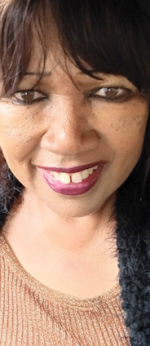
Connie Johnson is a California-based writer with four Pushcart Prize nominations for poetry. Her publishing credits include The Iconoclast, Haight-Ashbury Literary Journal, San Pedro River Review, Cholla Needles, The Muleskinner Journal, Sophon Lit, Voicemail Poems, Toasted Cheese Literary Journal, Mudfish, Shot Glass Journal, Gargoyle, Oddball Magazine, Glint Literary Journal, Exit 13, Sport Literate, and Sheila-Na-Gig. She has authored two poetry collections: Everything is Distant Now (Blue Horse Press) and I Have Almost Everything (boats against the current); In a Place of Dreams and Still Wild, her digital chapbooks (which contain audio readings/personal narrative), were published by Jerry Jazz Musician.
.
.
__________
.
.
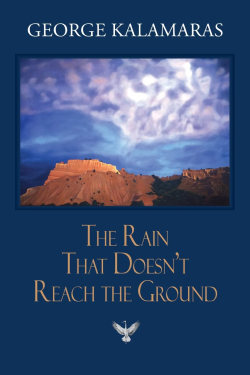
The Rain That Doesn’t Reach the Ground, by George Kalamaras [Dos Madres Press]
.
George Kalamaras’s The Rain That Doesn’t Reach the Ground is the latest installment of the poet’s forty-five year history with the American West: from having lived in Fort Collins, Colorado, full-time during most of the 1980s, to living an hour northwest in Livermore (near the Wyoming border) many summers since, to spending a summer in Big Timber, Montana, on the trail of locales visited by his belovèd Richard Hugo, to retiring from teaching in Indiana after thirty-two years and living six months a year in both Indiana and Colorado, to—finally—pulling up stakes in Indiana and settling full-time back in Colorado at 7,600 feet in elevation on Green Mountain in Livermore.
This enduring embrace of Colorado and the West has lent Kalamaras perspective not only on his adopted homeland but also on the significance of his Indiana roots, a landscape some might think pales in comparison but to Kalamaras offers the experience of the rich animal life and Indiana woodlands he adores as entrée into a deeper relationship with the natural world in Colorado. Like his poems about hound dogs, The Rain That Doesn’t Reach the Ground delves into some of the poet’s most personal and intimate reflections on life, spirit, the wisdom of animals, and living in harmony with one’s surroundings. This book is a meditation on place—whether it be a region one is preparing to leave or a place one has begun to inhabit with ever-deepening attention.
.
.
“George Kalamaras’s new book is a love song for the West, his adopted home country, but a darkly, exuberantly complicated and far-reaching one, packed with close observation, deep knowledge of history and natural history, and linguistic fireworks—not to mention a profound love and respect for the region and its creatures, human and otherwise. These expansive poems are enriched by years of experience, immersion in the landscapes of Colorado and the region, and fellow travelers of the best sort (William Stafford, Georgia O’Keeffe, Kenneth Rexroth, and a host of others). By turns elegiac, celebratory, and visionary, this generous collection takes us on a rich, rewarding journey through Western landscapes and Kalamaras’s extraordinary imagination.” —
Jeff Gundy, author of Wind Farm: Landscape with Stories and Towers
.
A poem from the book:
.
Throwing Salt at My Mother
She came again last night—
two, three dreams a week since she left
the body seven years ago.
My wife and I were hauling the Indiana oak
beneath which we’d gotten married, lugging it
with us all the way to Colorado, planting it here
on our mountain. And my mother
praised us, recalling for me an old photo
of her and me beneath that tree when I was five,
maybe six, the jeans I was meant to grow into
rolled at the cuffs, knees worn
from playing marbles. The sky was piercingly blue
and tornado-green at the same time—shifting,
it seemed, whenever I glanced at the slash pile
at the edge of the woods where we were told
to avoid the snakes. The hounds were restless,
a gangly blue-speckled pup running into my arms,
whining and whimpering for me to adopt it.
Dark across my heart, I knew the world could not
keep going on. That my breath would one day
cease. I had inconceivably reached
my sixty-ninth year. And all the hours of weeping,
of feeling less than whole, stood like stone
figures at the opening of a tomb. Fog
like talus caves settling. Woodsmoke
clouding my mouth. And still, I wanted to live.
And my mother wanted me to have that tree,
leaning into me, saying, Bring it inside near the willow,
honey, already growing in your chest. And all I knew
was how little I knew. How the crowded years
of the leafy growth of my brain
had brought me only a bit of shade, a slip
of shelter from the rain. Somehow, there were piles of salt
at the base of the tree, stacked like tiny Shinto temples,
circling it. I reached for them and began
throwing handfuls at my mother, saying,
I therefore commit your body to this tree.
Leaf to leaf, branch to branch.
We come from salt, and to salt we return.
It made so little sense, but I knew she needed
to absorb the salt, absorb whatever I threw at her.
That she was my mother drawing me back in.
That I would give birth to her
always, night after night
in my sleep.
.
(Note: This poem originally appeared in AGNI Online, 2024.)
.
.
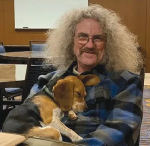
George Kalamaras, former Poet Laureate of Indiana (2014–2016), is Professor Emeritus of English at Purdue University Fort Wayne, where he taught for thirty-two years. He is the author of twenty-six collections of poetry—seventeen full-length books and nine chapbooks. He has also published a critical study on Western language theory and the Eastern wisdom traditions, Reclaiming the Tacit Dimension: Symbolic Form in the Rhetoric of Silence (State University of New York Press, 1994). He is the recipient of numerous grants and awards, the most recent of which is the 2024 Indiana Book Award for Poetry for his 2023 book from Dos Madres Press, To Sleep in the Horse’s Belly: My Greek Poets and the Aegean Inside Me. George and his wife, writer Mary Ann Cain, have nurtured beagles in their home for thirty years, first Barney, then Bootsie, and now Blaisie. George, Mary Ann, and Blaisie have been dividing their time between Fort Wayne, Indiana, and Livermore, Colorado, in the mountains northwest of Fort Collins. They have recently completed a move and are now living full-time in Livermore, Colorado.
Click here for more information about the book
.
.
__________
.
.

Drifter, by Douglas Cole [Finishing Line Press]
.
Drifter, the newest poetry collection by Douglas Cole, explores the world through Situationist Guy Debord’s framework of the Dérive. An idea that intensifies observance with an acute attention to the various forces that draw us in or repel us from engaging with certain spaces, the Dérive as an action or a philosophical idea provides a nuanced, personal, political, even spiritual vocabulary for investigating the spectacle of our experience in the landscape of rooms, neighborhoods, cities, highways…
More information by clicking here
.
.
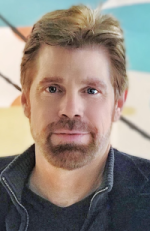
Douglas Cole has published eight poetry collections, including The Cabin at the End of the World, winner of the Best Book Award in Urban Poetry and the International Impact Book Award. His novel, The White Field, won of the American Fiction Award, and his screenplay of The White Field won Best Unproduced Screenplay award in the Elegant Film Festival.
Click here to visit his website
.
.
__________
.
.
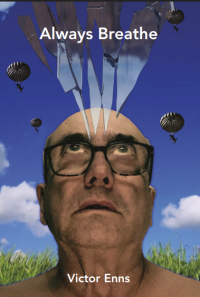
Always Breathe, by Victor Enns
.
Always Breathe is Victor Enns sixth publication. The “blisteringly candid memoir is structured in alphabetical units consisting of poems, prose pieces, social media-like posts, and one-liners that take the reader into the horror of a deteriorating body and constant pain.” (Armin Wiebe, novelist and poet)
Other writers say, “this collection leaves me with a haunting image of the poet hunched amidst the rubble of his days while the reader, transfixed by the speaker’s dogged rhetorical gestures, can’t help but marvel at the way poetry, no matter the precise genre, at once expands and shatters how and what we come to understand” (Hildi Froese Tiessen, author).
For more details, click here
.
A poem from the book:
.
Vibrations
My eyes were faster dreaming
a drum kit in bed with me
Rapid Eye Movement Disorder
disturbing my sleep and my wife
moving away with her cellphone
camera watch my arms begin to move
sliding up the headboard make
every move with my hands
arms that I’ve seen what’s more
I was keeping time a revelation
reminding me of sitting in an auditorium
slapping my leg ceaselessly never finding
the rhythm for Count Basie the real
Count Basie band, no idea which
drummer was in the band,
but man, I was excited.
I was excited. Gentleman
next to me, very politely and graciously
asking “you’re a drummer then?”
“No, I said with embarrassment
having drawn attention
I didn’t want then, or
that night in bed
next to you darling,
just banging asway
waking up just in time
for the smash of a cymbal
then holding gently
to keep the vibrations
still in my hands.
.
.
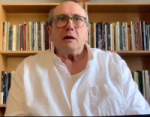
Victor Enns listens to jazz and buys recording in any format. He has moved to the Okanagan Valley in British Columbia, though he can no longer drink the valley’s fine wine, he listens with his wife of five years, an advocate of Disability Without Poverty.
.
.
__________
.
.
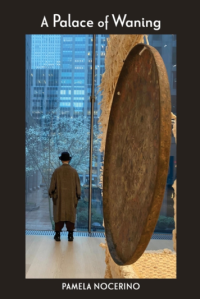
A Place of Waning, by Pamela Nocerino [Finishing Line Press]
.
In her debut poetry collection, Pamela Nocerino explores the personal and universal search for a feeling of home through themes of place, loss, and self. Her poetry invites readers to search as far as space and as near as moving fabric.
.
.
A poem from the book:
.
The Tight Possible
If I felt worthy
of the love
I offer others,
what would
tick, spin,
loosen, or cling?
The long songs
of Sundays
and midnights
would hum
in what key?
I drum
evergreen needles
like jazz brushes
against the tight
possible
and try.
,
,

Pamela Nocerino taught middle school writers and actors for over 20 years, worked with students in medical school, and once helped build a giant troll. Now, she moonlights as an organizer of soaring creatives in business. Her poetry and fiction appear in multiple places, including Jerry Jazz Musician.
.
.
__________
.
.

On Earth as it is in Heaven, by Vishwas R. Gaitonde [Orison Books]
.
‘On Earth As It Is In Heaven,’ Vishwas Gaitonde’s first story collection, won the Orison Fiction prize and has been published by Orison Books.
To turn earth into heaven is a tall order, but no matter where they live on this planet, the people in these 11 stories hold out hope that at least a small portion of heaven might brighten their patch of earth. But the heaven one person wants is different from the heaven the others want.
In these stories we meet Americans and Moroccans, Indians and New Zealanders, Britons and Pakistanis and Sri Lankans. They long for different versions of heaven but their desires are common. These vivid characters and more demonstrate what connects us all, no matter where we’re from or where we find ourselves.
.
.
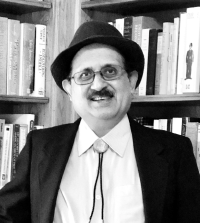
Vishwas Gaitonde’s formative years were spent in India. He has lived in Britain and now resides in the United States. He was a finalist in The Chautauqua Institution’s Janus Prize “for daring formal and aesthetic innovations that upset and reorder readers’ imaginations.” Literary distinctions include fellowships in fiction at the Anderson Center for Interdisciplinary Studies (Minnesota) and Hawthornden Writers Residency (Scotland).
.
.
__________
.
.
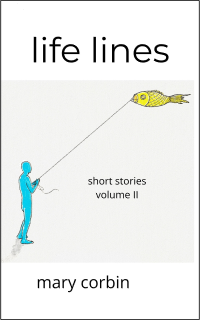
Lifelines: Short Stories, Vol. II, by Mary Corbin [Lila House]
.
From Lila House Press, Mary Corbin’s Life Lines, Volume II, is a continued exploration of what brings us together, keeps us connected, or lets us go. Like a kite in the wind, we remain grounded or in flight, with the guidance of another or through our own intuitive inclinations. What once carried us can change, depending on the direction of the wind.
Meet yourself in characters who define family in broad terms, from birthright to accidental encounter, in stories that explore the expectations of choice and destiny. In these 12 tales, storylines and characterizations overlap and commingle in both subtle and obvious parlance, finding the common ground we share with others in this fleeting dance of life. For what is family, but one precious soul fastening onto another, navigating together the vast expanse of the human experience. Within that space, we are all kin.
.
.
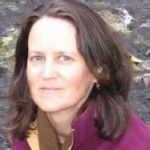
Mary Corbin is a writer and artist based in San Francisco and a graduate of California College of the Arts. Her stories have appeared in print and online publications, including The Saturday Evening Post. Mary seeks the mystery that lies beneath the surface of the ordinary.
Click here to visit her website.
.
.
__________
.
.

Balance, by Laurie Kuntz [Moonstone Arts Center]
.
“I’ve been thinking a lot about marriage lately. Maybe because my husband and I are celebrating our anniversary tomorrow. Maybe because I’m officiating at our youngest daughter’s wedding in October. So when I read Kuntz’s tender poem ‘While My Husband Forgets Our Wedding Anniversary,’ it made me feel all the feels. The poem says so much about what’s unspoken in longtime relationships. In another marriage poem, the speaker starts ‘to complain about each other’s complaints’ while walking with her spouse until they ‘turn a corner on all that needs to be turned.’ There’s humor in this collection, too — see ‘Haiku of 50 Years and 40 Pounds Ago’ or ‘My Conversation with Death’ in which the speaker cannot convince Death to ‘to take a sabbatical,/ a leave of absence,/ or weekends off.’ But Death be damned, Balance is a book about living, truly living, despite the threat of mortality, war, and natural disasters. These are poems that want to eat all the bread and spread all the butter, and I’m here for it.”
– Erin C. Murphy
.
“In this deeply moving collection of 25 poems, the quiet rhythms of marriage, the slow arc of aging, and the ache of grief are brought into focus. The verses in Balance are simultaneously tender and unflinching. They explore moments in life that place one squarely on a fulcrum, striving for balance and perspective. The world and its continual wars also bring a personal and collective need for reckoning. One leaves the pages of this book with ‘an astonished and renewed light’ (‘Solstice’), and a new respect for Laurie Kuntz’s resonant poetic voice.”
– Judy Ireland, poet & author of Cement Shoes (2013)
.
.
A poem from the book:
.
Balance
I could write endlessly
about all things foreboding–
hurricanes and turbulence
more likely due to warmer air
that carries us to a season
we hope to thrive in.
From June’s blossoms come
a life in harvest,
dark soil blankets the roots
of all that green:
a pasture, cross haired vines,
meadows abundant with wild petals
upon petals, every bloom opens
to summer’s endless embrace,
and we live as if nothing will ever end.
But, an end always comes,
hurricanes and turbulence takeover
a country’s spirit, a body’s betrayal,
an erosion of simple kindness.
Yet, somewhere a child
is learning to ride a wave,
someone’s mother is picking lilacs and lavender,
a father holds the seat of a two wheel bike
promising not to let go.
We need that balance
to embrace an endless summer state of mind
while dancing in the eye of a storm.
.
.
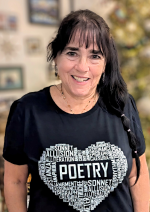
Laurie Kuntz is a four-time Pushcart Prize nominee and two-time Best of the Net Nominee. In 2024, she won a Pushcart Prize. She has published seven books of poetry. Her latest book published in 2025 is Balance, published by Moonstone Arts Center. In 2026, her 8th book, Shelter In Place, will be published by Shanti Arts Press. Her themes come from working with Southeast Asian refugees, living as an expatriate in Japan, the Philippines, Thailand, and Brazil, and raising a husband and son.
Click here to purchase the book
Click here to visit her website
.
.
__________
.
.
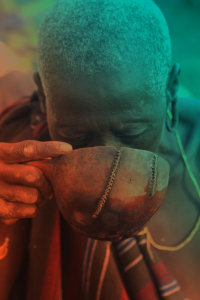
Black as Hell, Strong as Death, Sweet as Love: A Coffee Travel Guide, Text by Steven P. Unger/Photos by Ruth St. Steven [Robert D. Reed]
.
Black as Hell, Strong as Death, Sweet as Love: A Coffee Travel Guide is a history of coffee and a travel guide to Coffee Experiences on almost every continent. Plus, there are fourteen recipes, most with coffee. Among the Coffee Experience destinations are places that almost no one goes to, like Ethiopia’s South Omo, and places masses of tourists go to, like Paris. Other Coffee Experiences are closer to home for Americans, as simple as sharing a colada at a ventanilla in Miami’s Little Havana; or taking the Canal streetcar to the end of the line, where Morning Call in New Orleans’ Spanish moss-shrouded City Park offers chicory coffee, beignets, crawfish bread, gumbo, alligator sausage, and jambalaya just a short walk away from the last remaining section of Bayou Metairie.
.
“The authors love both coffee and cafés. I don’t care for coffee (besides Israeli instant coffee), but I am fascinated by cafés ‘where one can think.’ We all share the book’s vision of the café—as a world of dreams. This book helps those dreams come true.”
~ Ariel Rubinstein, Professor, School of Economics, Tel Aviv University and Department of Economics, New York University
.
“A passionate and precise work that tells the story of coffee from A to Z.”
~ Sébastien Gionta, Director of Marketing and Communications, Les Deux Magots, Paris
.
“Steven and Ruthie do an incredible job of telling both the history of coffee and the cultural importance of this mystical drink. As a self-proclaimed coffee snob, this book was enlightening and a joy. Pull up a chair, sip an espresso, and delight in a great read!”
~ Xavier Curtis, Founder of Go Further Tours: Ethiopia, Rwanda, and Uganda
.
.
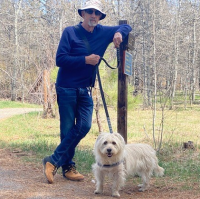
Steven P. Unger published three books in three years: the first of three editions of In the Footsteps of Dracula: A Personal Journey and Travel Guide in 2010 (the latest and 3rd Edition was published March 23, 2014, World Audience Publishers); Before the Paparazzi, 50 Years of Extraordinary Photographs in 2011 (World Audience, Inc.); and Dancing in the Streets in 2012 (Anaphora Literary Press). In September 2011, flaier.net ranked In the Footsteps of Dracula ahead of the Lonely Planet and National Geographic Traveler guides in its “The Best Romania & Moldova Travel Guides.”
.
.
__________
.
.

Luna at Dawn, by Martha Patterson [Bottlecap Press]
.
Martha’s first collection of poetry is comprised of 23 poems about nature, womanhood, nostalgia, youth, and self-acceptance.
.
.
.
.
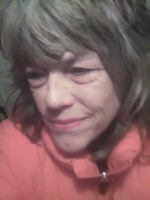
Martha Patterson’s 27-story collection “Small Acts of Magic” was published by Finishing Line Press in 2021. Her work has also been published in more than 20 anthologies and journals, and her plays have been produced in 21 states and eight countries. She has two degrees in Theatre, from Mount Holyoke College and Emerson College, and lives in Boston, Massachusetts. She loves being surrounded by her books, radio, and laptop.
Click here to visit her website
.
.
__________
.
.
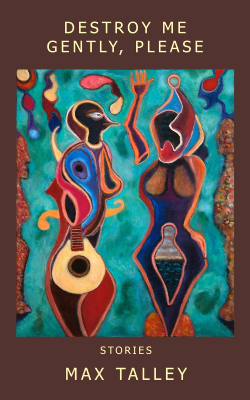
Destroy Me Gently, Please, by Max Talley [Serving House Books]
.
Destroy Me Gently, Please is Max Talley’s third story collection and has sixteen stories about men and women reeling from broken relationships or toxic jobs, desperate to start over again, tales of ’70s rock stars fighting to regain lost fame, about teenagers eager to grow up and escape stifling small towns. Even Lou Reed and Leonard Cohen turn up along the ride. Haunted drifters, middle-aged dreamers, unreliable narrators, and reliable underdogs all hoping for a last shot at glory or redemption. Talley traverses the mental landscapes from big cities on the East and West Coast to small towns in the Southwest, and even to Glam Rock-era London. Destroy Me Gently, Please collects Talley’s stories from 2017 to 2024.
.
.
“In this captivating collection, Talley depicts the dark beauty of America in all its most passionate desperation: characters wishing for betterment, for youth, for money, for opportunity, or letting their happiness hinge on some unknown moment of existential bliss. Many laugh-out-loud moments will keep you reading and you’ll finish with the eye-opening realization that truly, you already have everything you need.”
—M. M. De Voe, author of A Flash of Darkness and Book & Baby
.
.

Max Talley has two published novels and two short story collections, My Secret Place (Main Street Rag) and When The Night Breathes Electric. His writing has appeared in sixty journals and he’s been nominated for three Pushcart Prizes. His hippie crime novel, Peace, Love, & Haight, is forthcoming in fall from Three Rooms Press. He was born in New York City and lives in Santa Barbara, CA.
Click here to visit his website
.
.
__________
.
.

This Sunday My Daddy Came To Church, by Jeanine DeHoney [Sleeping Bear Press]
,
Jeanine DeHoney’s debut picture book, entitled This Sunday My Daddy Came To Church was published by Sleeping Bear Press on August 1, 2025. She is a Sleeping Bear Press, Own Voices, Own Stories Honor Award Winner. It is a story about a young son who enjoys going to church with his mother, who learns to accept the different ways we all worship when his father doesn’t join them on Sunday morning. In the story, the father’s love of jazz was interweaved into the story, inspired by Jeanine’s late father, a saxophone player and jazz afficionado.
The book is dedicated to both of her late parents who nurtured her and her older sister’s muses and taught them about faith and service to others and about great music legends such as Nina Simone and Miles Davis. Although a children’s book, the author considers it a family story about the loving bonds and rites of passages of a African American family that all families can enjoy. It was illustrated by USA Today bestselling illustrator Robert Paul Jr.
.
.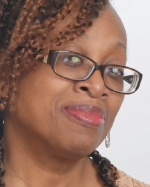
Jeanine DeHoney’s writing has been widely published online, in magazines, and literary anthologies. Her writing can be found in Literary Mama, The Dirty Spoon Radio Hour and Journal, Lemonwood Quarterly Review, KIZA Blacklit, Gemini Literary magazine, and Australia’s The School Magazine, among others. Her writing has also won or been shortlisted in several literary contests including Brooklyn Art & Film Nonfiction Contest and Australia’s Voices of Women Embellishment Contest.
.
.
__________
.
.
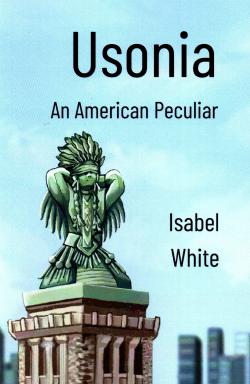
Usonia: An American Peculiar, by Isabel White [Alarms and Excursions]
.
The fruits of a pilgrimage taken in 2024, to some iconic American institutions, the book’s title is taken from Frank Lloyd Wright’s broader interpretation of ‘America’, embracing all its indigenous and immigrant cultures. The book features more than 50 poems describing the art, history, jazz and politics of an America that existed in a bygone age. It contains quirky illustrations and runs to some 80 pages, with copious notes to guide the reader to an eclectic smorgasbord of cultural references including Aretha Franklin, the Chelsea Hotel, Diego Rivera, Edward Hopper, Miles Davis, Motown, Roe versus Wade and Yosemite Sam. It is written as a continuous narrative, documenting the country from the arrival of 19th century settlers to a modern day exit by jet plane.
.
A poem from the book:
.
Where’s Warhol?
……………..(He’s at Studio 54)
The make weight tend to fluctuate
depending tonight on who’s on the gate,
but bling’s the thing on the Mount Olympus of glam
when scarecrows and scaredy cats
shake and shimmy to Sam the Sham.
First we Watusi, then we Alligator.
Maybe later, take a quaalude interlude;
the scene and herd
in a sea of bareback riders, where I find Liza
with a Zee, Halston, Andy, anyone who is anyone
(anyone but me).
.
.

Curator, activist, poetry slam and multiple competition winner (twice finalist in the BBC Proms and a dozen other competitions). With three previous collections and two pamphlets published to date, Isabel’s work has appeared in over 40 journals and anthologies on three continents. This is her fourth full collection.
.
.
_________
.
.

Notes, by John Murphy [The Lake Books]
.
The poems in this book focus on artists and producers in the popular music industry, covering all major genres: rock, jazz and blues as well as influential record producers. Some of the artists in the poems: Joni Mitchell, John Mayall, Cleo Laine, Chuck Berry, Brian Wilson, Buddy Holly, Jimi Hendrix, Robert Johnson, Paul McCartney, Tubby Hayes, Phil Spector, Blossom Dearie, Graham Nash, Anita O’Day, Jack Bruce, and more.
.
“More than a collection of poems, Notes takes us on a journey of appreciation of some of the key figures who made significant contributions to popular music in the 20th century”
David Mark Williams author of The Odd Sock Exchange and Papaya Fantasia.
.
“This engaging, eclectic collection spans best-beloved songs, singers and producers in a personal homage to the power of popular music.”
Pippa Little, author of Time Begins to Hurt
.
A poem from the book:
.
Cleo Laine
Imagine bathing in a bath of rose scented oil,
not the sticky kind of oil but an oil that caresses
the skin and enters the pores infusing the blood
flowing through the brain’s synapse.
Imagine then that the scent is a sound, a voice
curling around your senses and leaves
you wondering how a voice can do that.
How she did that, how Cleo made you close
your eyes and see the sound she made
so that you actually felt the scent of sound
flowing into your mind. The notes that curled
and dropped to a deep place where jazz comes from,
rising up into our senses, scattering scat phrases like
voice finger-clicks. And with Johnny blowing into her
songs, the edge of a sax flowing through her lyrics.
Imagine that in the sound of a voice.
.
Click here for more information about the book
.
.
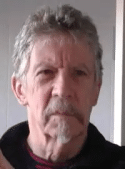
John Murphy is a retired lecturer of dual Irish/British citizenship living in the UK. He has lectured in English and American literature and Creative Writing and has a PhD in American poetry. He has published poems widely over the years and is editor of The Lake, an online poetry magazine. He has published three books, The Thing Is… (2009), Home (2022) and Notes (2025).
.
.
__________
.
.

Scattered Words, by Zoya Gargova [Kindle]
.
In my book I wrote about my feelings, about the different seasons of my loneliness, about the meaning of words, and sounds. My poems are my way to express the different colors and tastes of the ephemeral moments that leave a mark in our days.
I am not a professional poet, but writing was making me feel more alive and not so lonely, as if sharing words with a friend.
.
A poem from the book:
.
My postcards
In a box with some papers I found a postcard
– a picture of a place you visited.
You wrote on this card words for me
to read,
many years ago.
Were you happy there
away from me,
did you miss me?
I will never know.
My postcards are for birthdays
or just to say hello,
There is a special box –
the postcards never sent.
Looking at them
I can find a reflection
of some bright and happy days –
dancing sun rays in the air;
of the dark moments
flying away in the wind with
my sorrows and regrets
These are the postcards I am
still wishing to send,
still searching for your address.
.
.
Zoya Gargova is a Bulgarian-born molecular biologist whose research is focused on elucidating the mechanisms and pathways that lead to cancer. She has had a collection of poetry published in Bulgaria, and is a lifelong lover of classical music. She lives in Quincy, Massachusetts.
.
.
__________
.
.
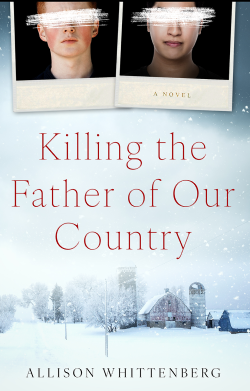
Killing the Father of Our Country, by Allison Whittenberg [Compassiviste
Publishing]
.
Two brothers. One impossible choice. How far would you go to protect the person you love most?
Sixteen-year-old Jonah Thelen’s life in small-town Wisconsin should be normal—school, part-time job, and the confusing almost-something with the girl next door, Lori. But nothing is simple when your stepdad is a monster and your little brother looks at you like you’re the only safe place in the world. Jonah’s spent years protecting Solly from Nick’s abuse. But after one brutal night too many, Jonah makes an impossible decision: he’s going to kill his stepfather. But when Solly starts to suspect what Jonah’s planning, their bond—once unbreakable—is tested in ways neither of them saw coming.
A fierce and haunting portrait of brotherhood, violence, and the impossible choices we make for the people we love, Killing the Father of Our Country is a gripping, emotional story about family, survival, and what it really means to do the right thing—even when everything feels wrong. 5% of proceeds will support the Wounded Warrior Project
.
.
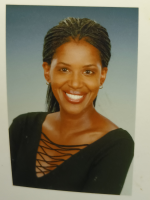
Allison Whitttenberg is novelist, poet, and playwright. She has been writing Killing the Father of Our Country off and on for the past twenty years and is happy to see it out in the world.
.
.
__________
.
.

Zig Zag Girl, by Ruth Knafo Setton [Black Spring Press]
.
Zig Zag Girl is a twisty contemporary mystery with a touch of magic, set in Atlantic City and the eerie New Jersey Pine Barrens. Lucy Moon, a brilliant young magician with a mysterious past, works in the town’s theatre, staging performances of enchantment and conjure. But one night, during the ‘Sawing a Woman in Half’ trick, Lucy discovers her friend’s body in the box, dead. As Lucy digs deeper, she uncovers a trail of murders and suspects. With the help of a fierce group of female magicians and mystics, she must expose the truth before she becomes the final act.
.
.

Born in Morocco, Ruth Knafo Setton is the author of the novels The Road to Fez, and Zigzag Girl — which won the Grand Prize in the ScreenCraft Cinematic Book Competition and First Prize in the Daphne du Maurier Awards. She is a multi-genre author whose award-winning fiction, creative nonfiction, screenplays, and poetry have appeared in many journals and anthologies.
.
.
__________
.
.
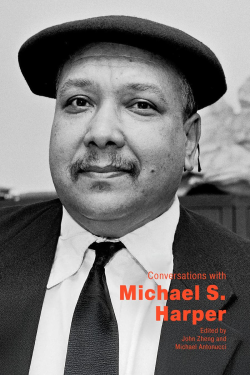
Conversations with Michael S. Harper, edited by John Zheng and Michael Antonucci [University Press of Mississippi]
.
Conversations with Michael S. Harper brings together thirteen interviews with one of the most innovative and influential voices in contemporary American poetry. A distinguished professor at Brown University and the author of fifteen poetry collections, Michael S. Harper (1938–2016) infused his work with the rhythms of jazz and blues, creating a lyrical space where Black history, culture, and spirituality converge.
Spanning nearly four decades, these interviews offer a rare and intimate glimpse into Harper’s creative process, intellectual rigor, and deep reverence for musical and literary traditions. For Harper, jazz was more than influence—it was structure, philosophy, and spirit. Whether discussing John Coltrane’s sonic power or the enduring wisdom of Sterling Brown, Harper reveals how music helped shape his poetic voice and his vision of American life.
This essential collection invites readers into conversation with a poet whose words continue to resonate across disciplines. A vital resource for scholars of American literature, African American studies, and poetry, Conversations with Michael S. Harper affirms the poet’s role as both witness and celebrant—one who transformed sound into story, memory into meaning.
.
.
John Zheng is the author of The Dog Years of Reeducation (Madville Publishing, 2023) and A Way of Looking (Silverfish Review Press, 2021). He teaches at a historically black institution in the Mississippi Delta.
.
.
__________
.
.
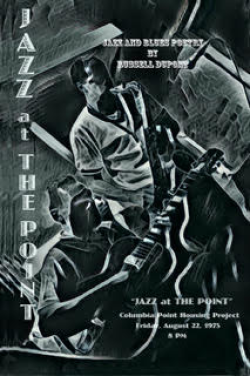 |
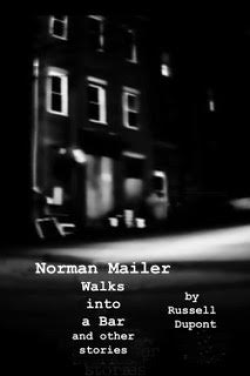 |
Jazz at the Point, and Norman Mailer Walks Into a Bar and other stories, by Russell Dupont [Squid Ink Press]
.
I’ve been fortunate enough to have two books come out this year; Jazz at the Point, a collection of poems on Jazz and The Blues, many of which have had the pleasure of being published in Jerry Jazz Musician; and Norman Mailer Walks into a Bar and other stories, a collection of short stories, set in Boston and its neighborhoods; stories about ordinary people, leading ordinary lives who suddenly find themselves caught up in life-altering situations. A young man has his first date. Two neighbors end up in court as the result of a dispute that begins with a pimple ball. A pleasant exchange of emails turns angry. And, of course, Norman Mailer walks into a bar.
;
Both books are available through Amazon
.
A poem from Jazz at the Point:
.
Licorice Stick
My parents had this big Crosley
and a stack of albums —
Goodman, the Dorsey Brothers —
and some nights I’d get up from bed
and peek into the living room
where my mother and father
slowly waltzed in place.
Rummaging through a closet one day,
I found, under bags of old clothes,
a long and narrow case
and inside, cradled on black velvet,
a sort of tube, black and slender,
with silver rings and levers —
an instrument I had never seen.
“Licorice stick,” my father said.
“Clarinet. Used to play —
but that was long ago.”
He rolled it ‘round in his hands,
set it back in its case,
tucked the case under his arm.
“No more, though,” he said.
A few nights later,
I woke to a melody,
sad and melancholy,
that seemed to float
in the air — and tip-toed
from my room to watch
my parents dance.
The lights were off
and the room was empty
but for my father’s profile,
standing by the window,
eyes closed, blowing notes
that caressed the night
.
.
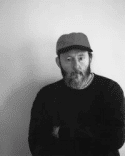
Russell Dupont, poet, artist, novelist, has published in the albatross, Spectrum, The I, For Poets Only, The Anthology of South Shore Poets, Re-Side, Oddball, Jerry Jazz Musician, Adelaide Literary Magazine, Rye Whiskey Review, Last Stanza Poetry Journal, the new post-literate, DADAKU, One Sentence, Verse-Virtual, Lothlorien Journal, Pick-Me-Up Poetry, Poetry Porch, Concrete Formalist Poetry and the Northern New England Review. He is the author of three novels: King & Train, Waiting for the Turk, Movin’ On; a collection of short stories, Norman Mailer Walks Into a Bar; three collections of poetry: Winter, 1948, Establishing Home Plate, and Jazz at the Point.
He is also the author of two non-fiction chapbooks — Up in Wisconsin: Travels with Kinsley, and There is No Dam Now at Richford. Examples of his work have been collected in the Archives of UMass Boston. His journalism has appeared in The Dorchester Community News, The Melrose Free Press and The Patriot Ledger.
.
.
__________
.
.
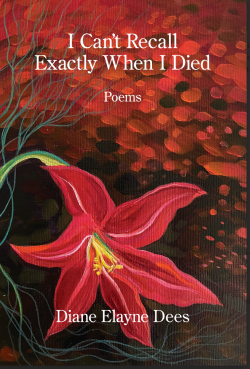
I Can’t Recall Exactly When I Died, by Diane Elayne Dees [Kelsay Books]
.
Diane Elayne Dees’ fourth poetry chapbook explores the effect of long-term trauma when a troubled marriage finally dissolves. Loneliness, anger, shattered self-image, and dissociation are all woven into the poems, whose metaphors involve everything from gardening to house decorating to playing tennis and pushing a weighted sled. The trauma of being in a toxic relationship leads to both fragmentation and self-realization, as the poet comes to understand what has happened to her as she searches “for all the parts that fell away.”
.
“…As the narrative moves from marriage to divorce, a realization arises: ‘My body has an instinct to survive.’”
—Christine Klocek-Lim, editor, Autumn Sky Poetry DAILY
.
“…It is a treasured and sometimes teary-eyed collection to read alone, yet it is also the perfect collection to read out loud with a few friends over coffee or a good bottle of wine.”
—Kay Kestner, editor of Poetry Breakfast
.
A poem from the book:
.
The Last Time I Felt Connected to My Body
Was it the time that I sat close enough to view
the ornamental stitching on Midori’s
gown as she offered me Sibelius
like a sacramental goblet at an altar?
Was it when I heard the metronomic swinging
of two rackets as the green clay formed fine dust?
Or when black and white surrealistic photos
made me feel like I might drop in a dead faint?
Perhaps the time I held a large sledgehammer
and transformed my wedding ring into debris.
My body has an instinct to survive,
to eat and drink and sleep through fitful dreams,
to push and pull and press and lift and sprint.
It doesn’t seem to have much need of me,
or who I thought I was before I noticed
that the long-term trauma that we called our marriage
had vaporized what some might call my soul.
Will we ever meet again, I and my body?
Or have I wandered so far from the living,
I cannot seek my bones, my breath, my blood.
……….(originally published in SubtleTea )
.
.
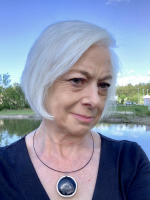
Diane Elayne Dees is the author of the chapbooks, Coronary Truth (Kelsay Books), The Last Time I Saw You (Finishing Line Press), The Wild Parrots of Marigny (Querencia Press), and I Can’t Recall Exactly When I Died (Kelsay Books).
Click here to read Diane’s author blog: Diane Elayne Dees: Poet and Writer-at-Large.
.
.
__________
.
.

Red, by Koushik Banerjea [Tangerine Books]
.
A cat narrowly avoids injury. Nearby a man is sat drinking tea, trying to absorb the catastrophe which has befallen him. Across a garden fence a machete changes hands. In the background the sounds of classic reggae can be heard. On the surface an ordinary London street, but bubbling up just below the scent and taste of lives at breaking point. Something has to give, and when it does there will surely be blood. Or in the local parlance, ‘claret’ or ‘red’…
.
.
Koushik Banerjea is the author of two novels: Another kind of Concrete (Jacaranda 2020) & Category Unknown (London Books 2022). His short stories appear in: Red (Tangerine Press) & Spittle tongue (Tangerine Press), Aeos, Spinners, Unlikely Stories, Feign Lit, Jerry Jazz Musician, Salvation in Stereo, Minor Literatures, Verbal, Writers Resist. His poems feature in: Remembrance, Third Space, Building Bridges (Renard Press), Mogadored (Tangerine Press), Tangled Lines, Spinners, Scumbag Press, and Razur Cuts magazine. A former youth worker, DJ, and journalist, he lives in south London, where he once ended up having dinner with legendary musician Roy Ayers after originally only going out for a pint of milk.
.
.
.
.
____________________
.
.
Click here to read previous editions of the Community Bookshelf
.
.
Click for:
More poetry on Jerry Jazz Musician
“My Vertical Landscape,” Felicia A. Rivers’s winning story in the 69th Jerry Jazz Musician Short Fiction Contest
More short fiction on Jerry Jazz Musician
Information about how to submit your poetry or short fiction
Subscribe to the (free) Jerry Jazz Musician quarterly newsletter
Helping to support the ongoing publication of Jerry Jazz Musician, and to keep it commercial-free (thank you!)
.
.
___
.
.
Jerry Jazz Musician…human produced since 1999
.
.
.








